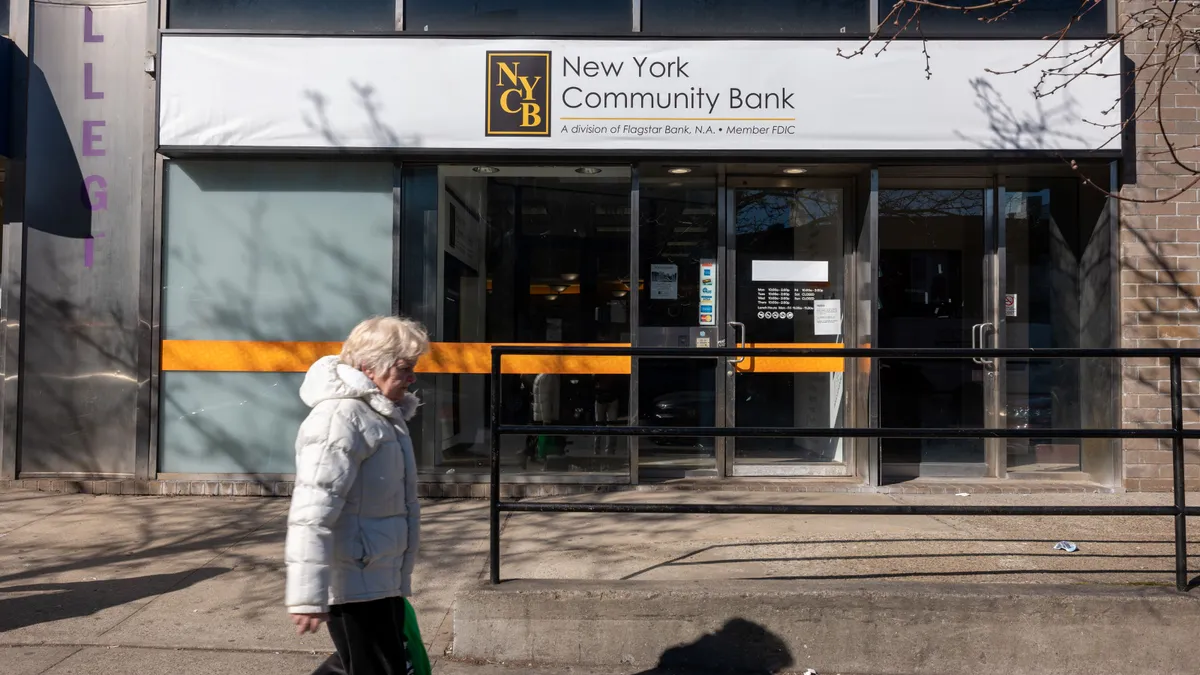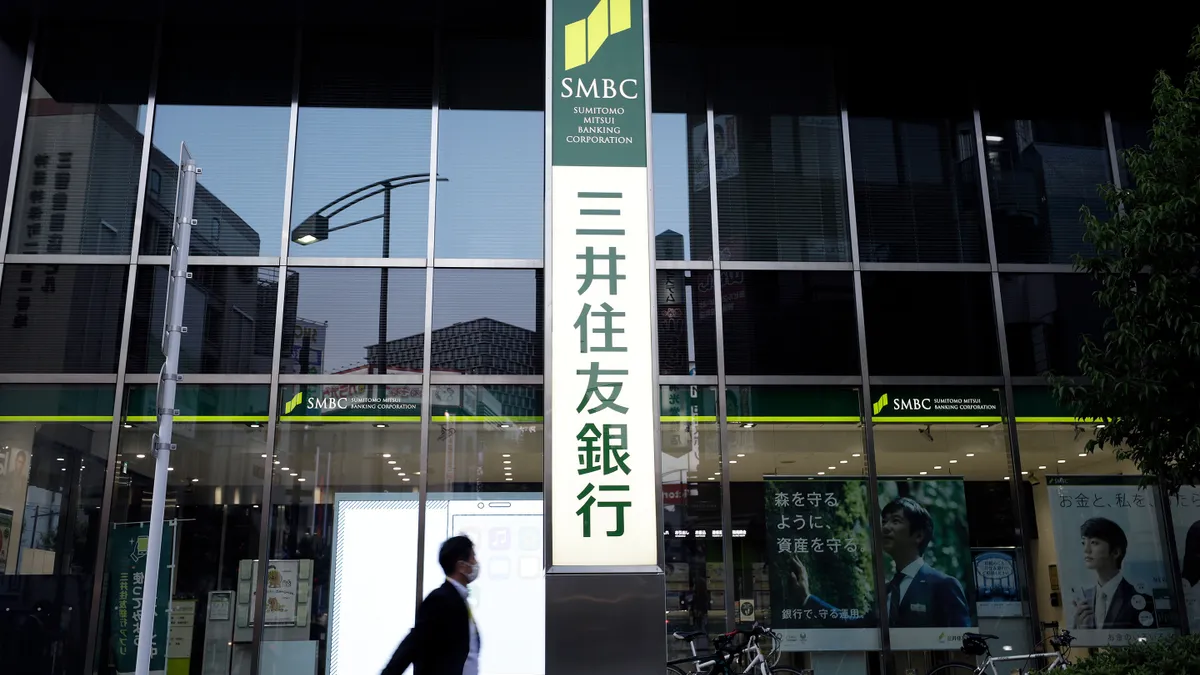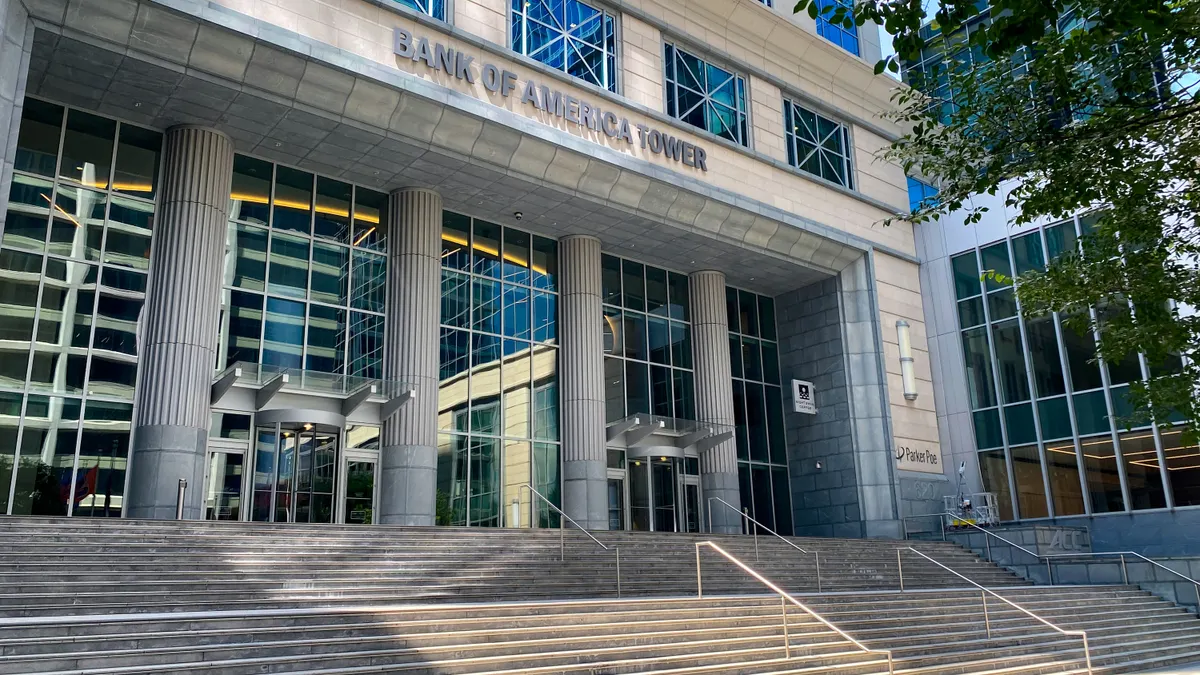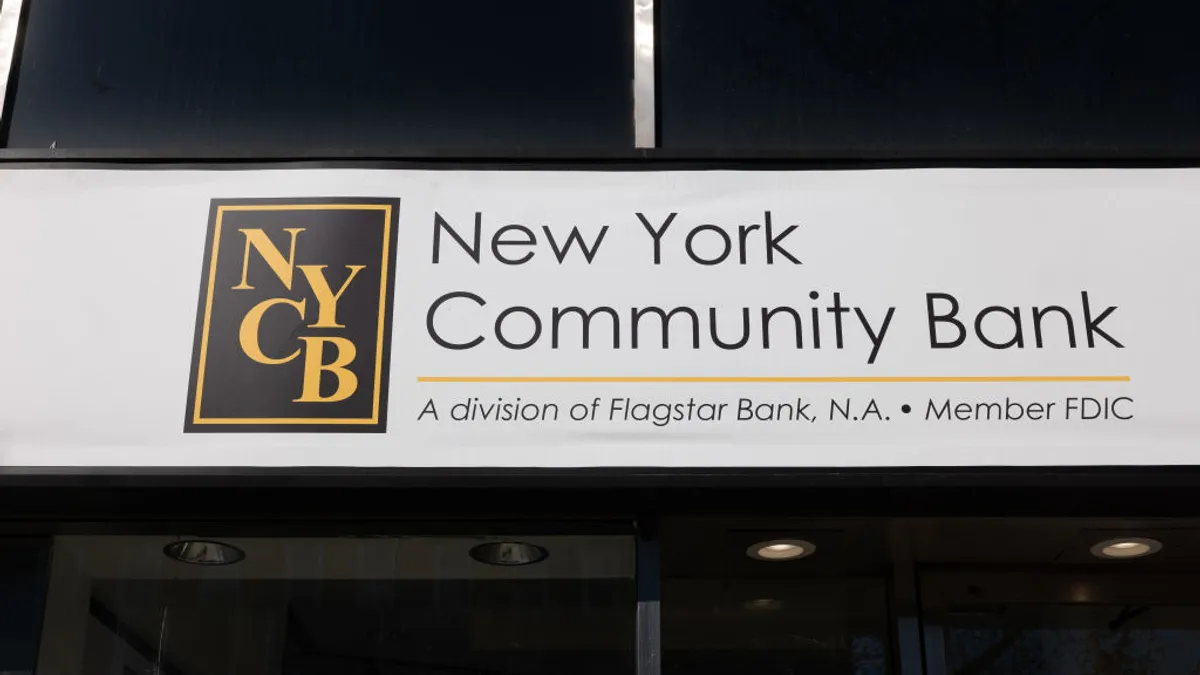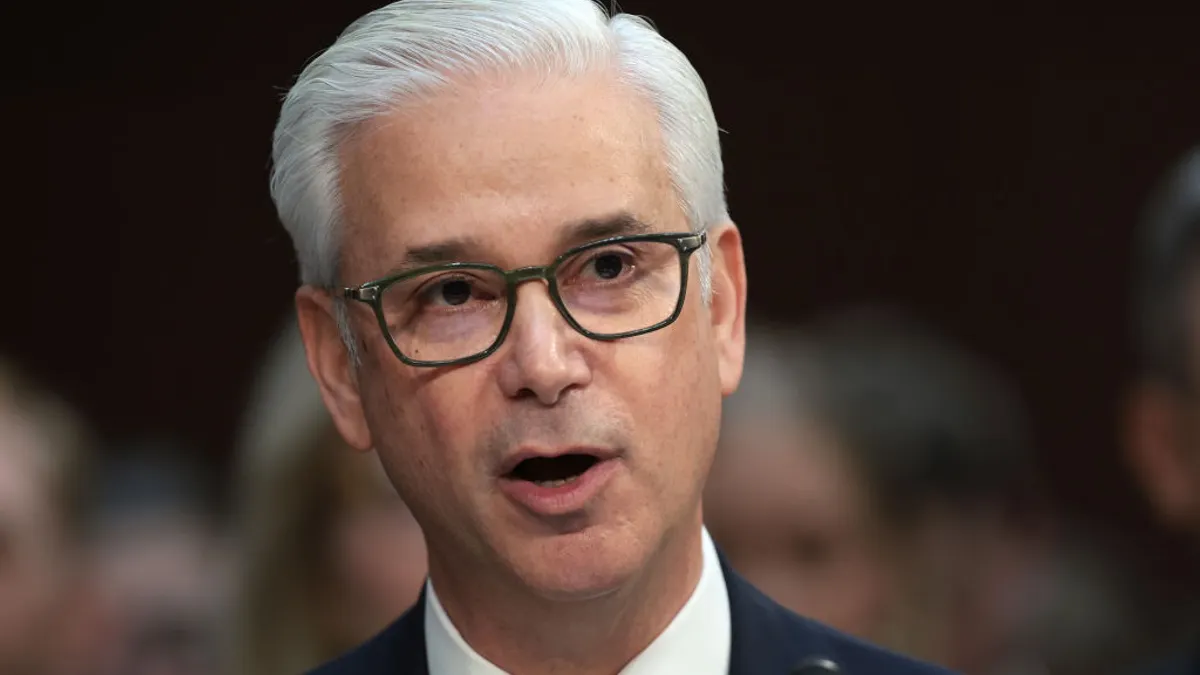Former Flagstar CEO Alessandro DiNello is accused of allegedly being aware of a client’s money laundering activities and discussing sensitive company transactions over a virtual conference while a “junior employee sat on his lap.”
The complaint was filed Tuesday by Ross Marrazzo, the one-time enterprise chief compliance officer at the bank who was terminated before he could conclude an investigation related to money laundering and insider trading allegations and report the findings to the appropriate government entities, according to the lawsuit.
“While Marrazzo investigated and raised many clear ethics complaints as part of his role, his termination was a brazen attempt to block an investigation into DiNello,” Marrazzo’s lawyers wrote in the lawsuit filed in the U.S. District Court of Eastern District of New York.
Marrazzo, a 40-year veteran in the regulatory compliance field, worked at New York Community Bank, which merged with Flagstar in 2022 and adopted the Flagstar name last year.
At NYCB, he monitored the lender’s ethics program and was involved in reviewing ethical violations and breaches related to federal laws and regulations.
In March 2023, NYCB bought a large segment of the failed Signature Bank for nearly $2.7 billion. In March 2024, as NYCB faced financial problems, the bank’s CEO resigned and the board installed DiNello as chief executive. (Since the NYCB/Flagstar merger, DiNello had been serving in a non-executive capacity.) But DiNello’s tenure as NYCB’s CEO was short-lived. He stepped down in April 2024, when Joseph Otting took the helm.
Following the leadership changes, Marrazzo – who had previously led remediation efforts for Signature Bank's regulatory issues – headed multiple investigations involving DiNello, the lawsuit noted.
In February 2024, the bank's anti-money laundering system flagged a client for illegal “structuring” of deposits. After Marrazzo's investigation confirmed at least three instances of the activity, he informed DiNello that the account needed to be closed. DiNello urged Marrazzo to keep the account open and suggested informing the client about the investigation – a violation of federal regulations, the complaint noted.
Marrazzo closed the account, but later discovered DiNello had personally contacted the client about their “gambling problem,” according to the lawsuit. This communication may have constituted illegal “tipping,” according to the suit, and violated the Bank Secrecy Act.
When Marrazzo defended his actions, DiNello explicitly threatened, “I would fire you if you did [it again],” according to the complaint. Following this incident, Marrazzo was excluded from executive meetings, the complaint indicated.
In early 2024, during a video meeting with law firm Skadden Arps, Slate, Meagher & Flom, where material nonpublic information was discussed, DiNello had “a clearly-visible junior NYCB employee sitting on his lap and rubbing his head.”
Another executive who witnessed it, reported the incident to Marrazzo as a whistleblower complaint, providing screenshots as evidence, raising two concerns: a human resources issue related to a potentially inappropriate workplace relationship; and a regulatory one about discussing sensitive, nonpublic information in the presence of a junior staff.
Marrazzo reported the incident to the chair of the audit committee, and outside counsel from the law firm Cravath, Swaine & Moore investigated the matter. Despite the investigation, DiNello faced no disciplinary action, as board members reportedly dismissed the incident as a “misdemeanor,” according to the suit.
When probed further, the board said there was no specific company policy prohibiting such behavior and that the outside counsel advised management that DiNello “would have sued” the bank if terminated and that it would be a “mess” if he was fired, according to the suit.
The lawsuit claims DiNello’s termination is a direct follow-up of an investigation into the suspicious financial transactions.
DiNello maintained a substantial multimillion-dollar account with NYCB. Around the time Liberty Capital acquired controlling interest in NYCB, management was offered reduced-price stock, though that offer was later rescinded, according to the suit. During this period, DiNello made a $5 million transfer to a millionaire and received $1.7 million back, according to the complaint.
These transfers triggered the bank's AML monitoring system. Marrazzo, along with the financial crimes compliance officer, interviewed DiNello in June last year. DiNello claimed he simply “lent” money to an “old friend” without documentation, according to the suit.
The money was sent to an LLC's bank account, not an individual, but the $1.7 million return came from the friend's personal account, not the LLC.
Marrazzo and his team raised a request with other banks to obtain more information on the bank transaction and was “abruptly” terminated, effective in September, while he was awaiting crucial information from another bank.
Marrazzo had entered an agreement with the company in June 2022 for 36 months, which stipulated that Marrazzo was entitled to a severance package if terminated by the bank. When he was terminated, he was neither offered nor paid the severance amount he was entitled to under the agreement and his termination was classified as “without cause,” he said in the suit.
Marrazzo is seeking employment restoration along with financial compensation, including back pay with all bonuses, compensation for all monetary and economic damages and those arising from physical and emotional distress.
Marrazzo is also requesting an order to stop the defendants from violating whistleblower provisions and to prevent the defendants from sharing disparaging information about Marrazzo to potential employers and protection from interference with his future employment applications.


